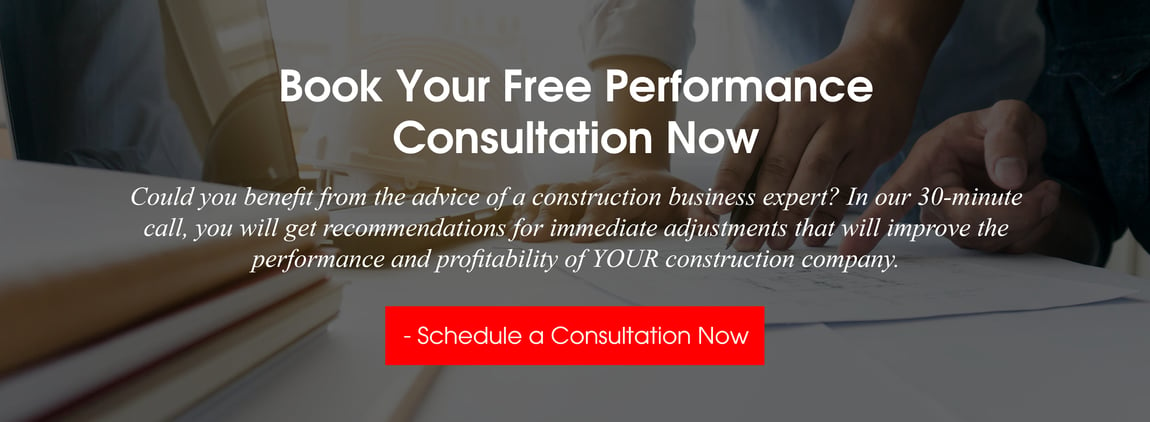Thomas Watson Sr., president of IBM for over 40 years, first coined the phrase “Nothing happens until someone sells something”. This is a basic tenet of business; without a sale, there is no business.
For a growing construction company, business development efforts typically fall on the owner. They have the connections, relationships and contacts that drive the sales engine of their company. They develop the sales strategy, manage and develop client relationships, and identify and maximize future business opportunities. They negotiate the deals, meet with the clients, and may even do all the estimating. It is certainly one of the most important roles in the organization.
If all goes well, the company may outgrow the owner’s ability to manage the business development efforts single-handedly, or the owner may choose to focus on other areas of their operation. When this happens, it’s time to consider hiring a business development professional to take over this critical role.
But how does an owner select the right person for the job?
Ideally, the person selected for the business development role will be able to maintain all of the company’s existing accounts and introduce new contacts and opportunities. They will assess the markets you’re in currently, and investigate new markets for opportunities. Ultimately, the person filling this role should be an expert at evaluating the business from a large-scale perspective and possess the ability to lead the company towards the best approaches for marketing, customer service and sales.
There is no set background or skill set that makes one business development professional better than another, but there are traits that successful professionals often share: excellent communication skills, empathy, pro-activeness, the ability to read and connect with people, a commitment to continuous development and improvement, and positive thinking are all desirable qualities.
Hiring a business development professional who is already knowledgeable about your company and industry is ideal, but you should allow time to train them on the specifics of both. What you should look for, first and foremost, is personality. The right person can always be educated, but personality can’t be taught. It isn’t overly complicated to learn about someone’s personality and mindset. In addition to structured and authentic conversations during the interview process (discussed below), there are some external methods you can utilize to help assess a candidate’s suitability. For example:
- Personality typing, such as Meyers-Briggs ®, DISC ® and StrengthsFinder ®
- Predictive Index ® surveys
- Competence-based interview questions to assess the candidate’s approach to problem-solving
When personality typing tools are used, it’s important to ensure that they are applied and interpreted correctly. While there is no such thing as a “good” or “bad” personality, there are traits that you would expect to see associated with certain roles. For example, introverts are typically outperformed by extroverts in business development and sales roles.
Aside from the soft skills discussed above, you’ll want an understanding of their actual business development skills. Here are some real-world questions and guidelines for screening candidates.
Read More: How To Recruit and Hire Top Performers
Deals:
What deals have they negotiated on their own? How complex were the terms? What is a clever deal they pulled off? What impact did the deal actually have on the company? How did they help the client? What extra value did they bring to the deal?
References:
Business development professionals often have lots of friends and connections as their job is outwardly focused and they tend to be very charismatic. Get references from people who worked with them directly on deals. Back-channel more information on them. Ask about the specific deals they worked on, how creative they were, and the tangible impact the deal had on the company.
Follow-through:
How is their follow-through during the interview process? How structured are they? What approach do they take in negotiating their compensation package? How do they react to negative responses? How persistent are they? Do they get discouraged easily?
Culture fit:
What are they optimizing for? Title? Equity? Future growth? Something else? How do they fit in your culture? Business and sales people will be different from technical or product people in a number of ways, but they should still hold to your core cultural values.
Other questions that are worth considering during an interview:
- What would have to happen for them to remain a long-term, successful employee?
- How will you measure their performance?
- What are reasonable expectations for this position?
- Can they be trusted to represent your company to clients and prospects?
- How will you get them educated on your company and their new role?
- How long will that take?
- What will they need to be successful?
Building a company with a long-term future requires commitment, passion and leadership, as well as a great product, service and team. Hiring someone to be the public face of your company and represent your products and services is critical, so invest the time and attention in hiring the best person for the position. Following these guidelines and asking these questions will help guide you through that process and set you up for success in your selection.
Read about Incentive plans for Business Development Professionals:
If you're ready to start working on your business, let's talk!
Ascent Consulting’s mission is to Build Better Construction Companies.
We are committed to delivering impressive results in the areas of
profitability, performance and growth.

Ascent's founder and president, Adam Cooper has over three decades of experience in construction business ownership, sales & marketing, project management, construction technology, company operations and leadership.








Leave a Comment
Your email address will not be published. Required fields are marked *